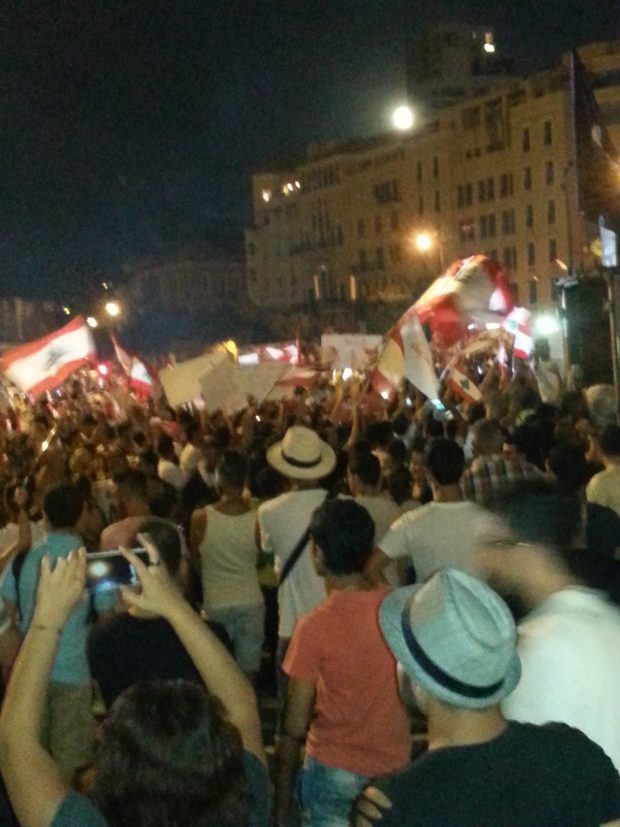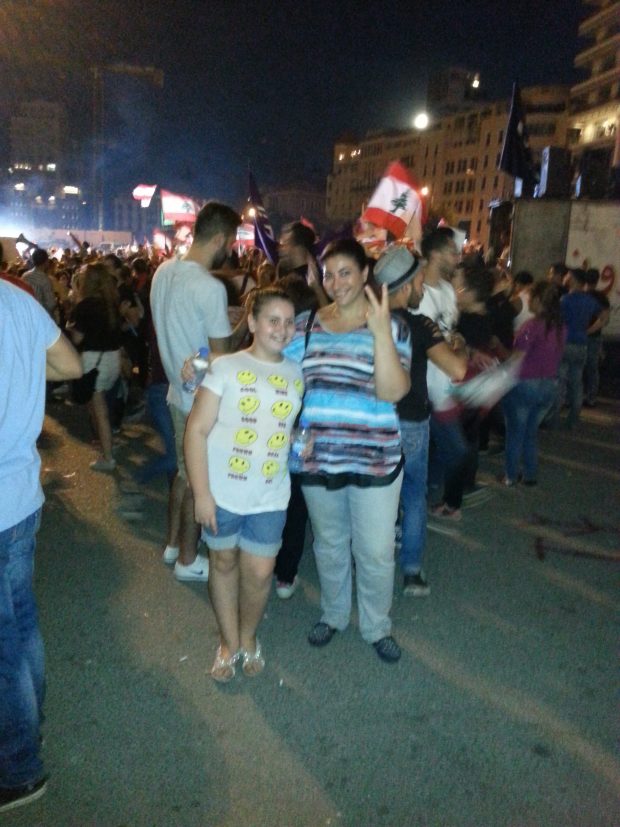The Lebanese Recurrent Crisis
Lebanon went through repetitive political, social and economic crisis which reflected negatively on its social reality and living, and up until now, Lebanon is suffering from the repercussions. A series of protests and political demonstrations were staged demanding political and social repairs.
One of the biggest protests that lasted until the end of 2015 was the “You Stink” protest which was about the start of garbage piling in the streets of Beirut and other regions and the inability of politicians to address the crisis by a short period of time.
The protesters demanded the dismissal of the Lebanese government because of rampant political corruptions by politicians and leaders who represent each sect of Lebanese contemporary society, and who most of them were leaders in the Lebanese civil war. Considering the recent garbage crisis as the breaking point, demonstrations turned into protests against the deteriorating situation in Lebanon since the assassination of Rafiq Al-Hariri in 2005 and the end of the July war (Israel attack on Lebanon) year 2006, especially the continued electricity crisis, unemployment, high real estate prices and rising government debt.
There is no doubt that these demonstrations and although they were expressing distress and pain of Lebanese people especially the young generation, and were sugar coated to attract different people, but in fact it was to resolve conflicts between opposing political currents (The Free Patriotic Movement covered by Hizballah) and the Lebanese Government, since what draws attention in their opinion is to time these demonstrations during the period of presidential vacancy, which was for approximately two years.
On the other hand, protesters have supported in their demands of Government and House of Representative’s resignation, considering that this government is not working and the representatives are not doing their job since they weren’t able to elect a new President in two years after the mandate of President Michel Suleiman. But in return, they refused the resignation of the Government and Parliament immediately because then it wouldn’t be possible to elect a President, form a new Government or elect new Parliament members, which will destroy the country completely.
One analyst considered these protests important for it showed the ability of Lebanese people in uniting. Through linking politics to daily life issues and not only strategic issues, despite their importance. For it expresses a longing to restore the politics and hold accountable those responsible for a phase of political decadence that has not been seen since the civil war.
On the other hand, it was said that these demonstrations “revolution that won’t succeed”, because it doesn’t have attractive leadership nor clear ideas and writings, as in historical revolutions like the Bolshevik revolution and the French Revolution etc, since revolution cannot be under a sectarian division and doctrinal among community members.
For these protests are considered more than a demand for change but still not a revolution because there are no clear demands, aims or even a leader to take control in case the revolution worked in the absence of the authorities, the fact that the Lebanese have chosen the sectarian over citizenship made it hard for any revolution to take place and to succeed no matter how true the claims of this revolution were, never forgetting to mention that these protests were accompanied with Acts of rioting and violence that led to the injury of nearly 400 people.
The movements in Lebanon started individually refusing to be under partisan or sectarian spectrum, but it expanded and evolved to movements and conflicts with the security forces because of elements aiming to stop the protest. Lebanon was going through garbage crises in the light of political paralysis with the vacancy of the presidency and the extension of the House of Representatives and disrupt of the government.
The presidential vacancy that happened in that period raised many legitimate concerns on Lebanon’s settlement and on the work continuity of political institutions. For historically presidential vacancy was linked to political division like what happened in 1988, Or non-recognition in the legitimacy of the existing government by a large section of the political forces like when Fouad Siniora was president. In both cases, it was shown that the political vacancy has led to the paralysis of state institutions and contributed significantly to the increase of political divide. This was associated with serious security incidents where dozens of citizens were victims and increased the split between the Lebanese.
With the deepening of the internal political division and regional, it was feared that the presidential vacancy may lead to the deterioration of the political situation in Lebanon and threatens to postpone the new parliamentary elections which may increase worsen the Lebanese political system and oust the legitimacy of state institutions that were democratically elected.
The presidential vacancy for almost two years and the garbage crisis which sparked anti-government movement, as well as the big amount of Syrian refugees, cost Lebanon a lot of its investors and opportunities for regenerating the country.
The multi-ethnic electoral system in Lebanon which is based on power-sharing between the Christian president of the Maronite, Sunni Prime Minister and Shia Chairman of the deputies, leads to the country’s paralysis.
The second problem in Lebanon, which causes regional instability, is the refugee crisis. After the war in Syria, Lebanon witnessed around 1.6 million of Syrian refugees in addition to 500 000 Palestinian refugees which is about 50 percent of Lebanon’s population while the Lebanese citizens are less than 5 million people. This makes it the highest per capita concentration of refugees in the world.
Today and after the election of a new president, most Lebanese citizen awaits changes to feel safe and stable, otherwise they will rise up and protest again until their demands are met.


























































